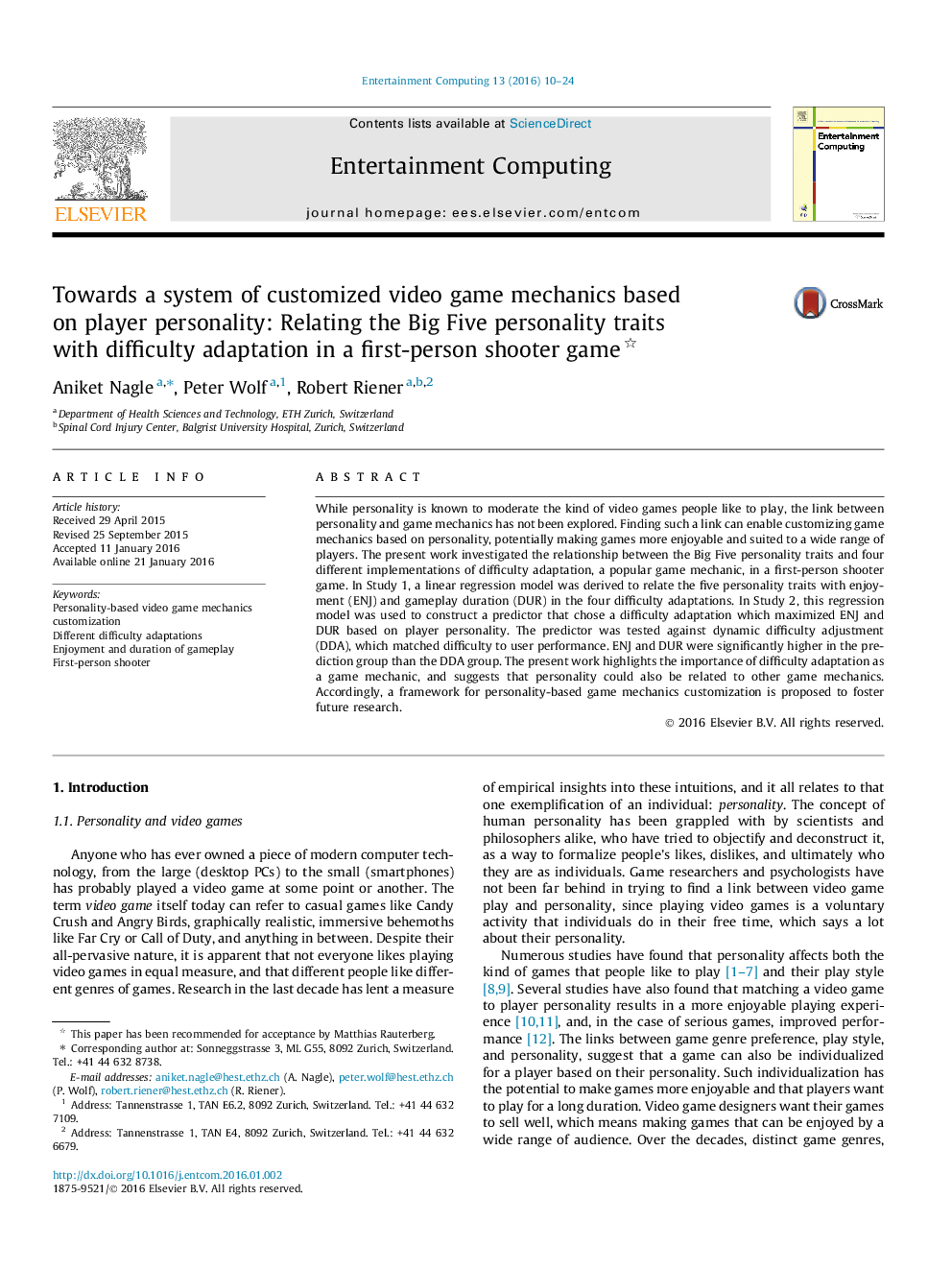| Article ID | Journal | Published Year | Pages | File Type |
|---|---|---|---|---|
| 381807 | Entertainment Computing | 2016 | 15 Pages |
•Personality moderates enjoyment, gameplay duration in different difficulty adaptations.•A linear model was derived to relate personality traits and the two outcome measures.•Choosing a difficulty adaptation based on the model results in a better gameplay.•Customizing difficulty adaptation based on personality is thus possible and desirable.•We propose a general framework for personality-based game mechanics customization.
While personality is known to moderate the kind of video games people like to play, the link between personality and game mechanics has not been explored. Finding such a link can enable customizing game mechanics based on personality, potentially making games more enjoyable and suited to a wide range of players. The present work investigated the relationship between the Big Five personality traits and four different implementations of difficulty adaptation, a popular game mechanic, in a first-person shooter game. In Study 1, a linear regression model was derived to relate the five personality traits with enjoyment (ENJ) and gameplay duration (DUR) in the four difficulty adaptations. In Study 2, this regression model was used to construct a predictor that chose a difficulty adaptation which maximized ENJ and DUR based on player personality. The predictor was tested against dynamic difficulty adjustment (DDA), which matched difficulty to user performance. ENJ and DUR were significantly higher in the prediction group than the DDA group. The present work highlights the importance of difficulty adaptation as a game mechanic, and suggests that personality could also be related to other game mechanics. Accordingly, a framework for personality-based game mechanics customization is proposed to foster future research.
